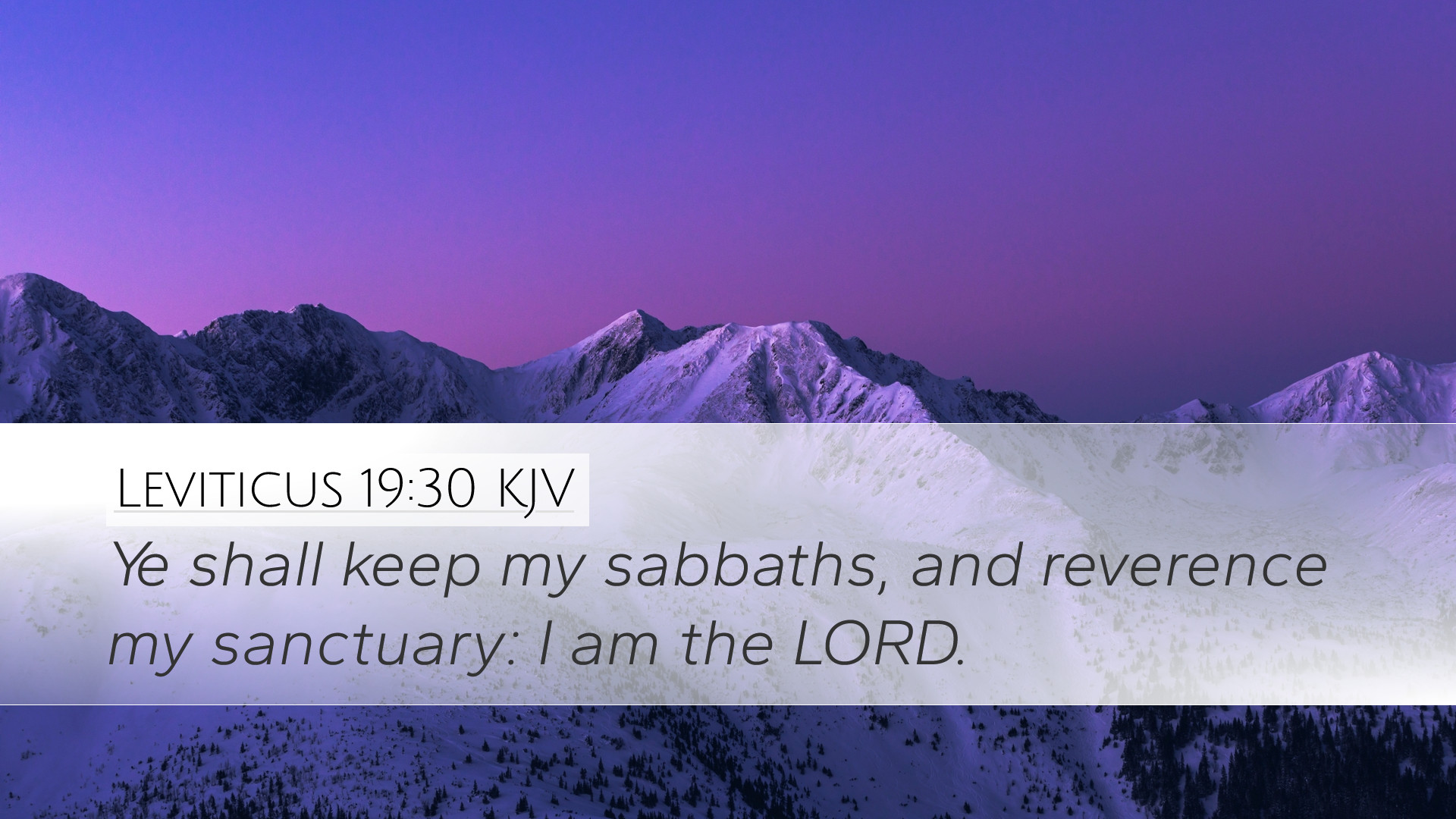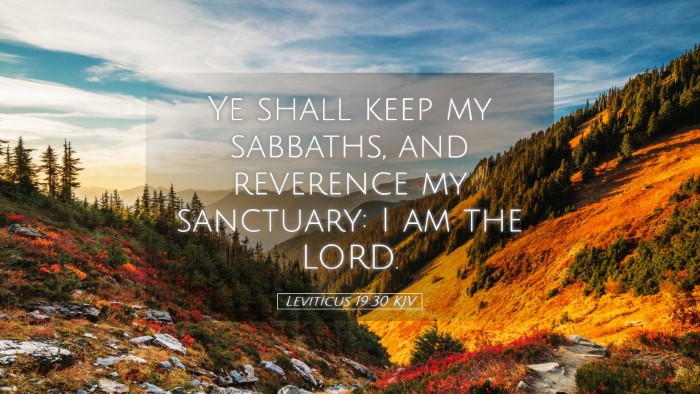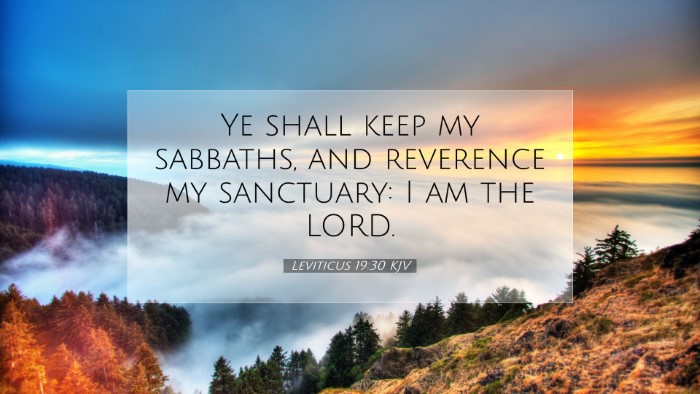Commentary on Leviticus 19:30
Bible Verse: "You shall keep my Sabbaths and reverence my sanctuary: I am the Lord."
Introduction
This verse encapsulates two critical components of the Israelite's covenantal responsibilities: the observance of the Sabbath and the reverence of the sanctuary. Each element highlights God's holiness and the necessity for His people to maintain a distinct lifestyle in accordance with His statutes.
Observance of the Sabbaths
The command to keep the Sabbaths is foundational in Israel's communal and spiritual life. Matthew Henry elucidates this by emphasizing the significance of the Sabbath as not merely a day of rest but as an ongoing expression of trust in God's provision. He writes, "The observance of the Sabbath is an acknowledgment of God as Creator and a sign of the covenant relationship between Him and His people." This emphasizes the frequency of Sabbath observance—weekly, and during other religious feasts—reinforcing Israel's identity as God's chosen people.
Albert Barnes adds that the Sabbath is not just a physical cessation of work; it represents a deeper spiritual rest found in faith. He notes, "The Sabbath rest is a profound statement of spiritual reliance upon God's providence." Such theological underpinnings reason that the physical rest is tied intricately to spiritual renewal. Consequently, neglecting the Sabbath translates into a failure to trust in God's sovereignty.
The Reverence for the Sanctuary
The second command concerning the sanctuary speaks to the heart of worship within Israelite society. Adam Clarke emphasizes that God's sanctuary is holy, thus deserving of reverence. He observes, "To revere the sanctuary is to acknowledge God’s presence amid His people and to respect what it represents—the meeting place between a holy God and sinful humanity." Clarke understands that the character of worship must align with the greatness of God, suggesting that contempt for sacred places can lead to severe consequences.
Matthew Henry reinforces this by suggesting that reverence for the sanctuary includes both physical and spiritual elements. He writes, "The manner in which one approaches the sanctuary should reflect the attitudes of humility and reverence appropriate for encounters with the Divine." This serves as a reminder for contemporary worship practices that often risk becoming overly casual or flippant.
Theological Implications
Both commands imbue a sense of holiness attached to the divine and the sacred. Keeping the Sabbath and revering the sanctuary are invitations into a lifestyle of holiness. Barnes captures this essence, asserting that "To live in obedience to these commands is to align oneself with God’s holiness and to participate in His redemptive plan."
The tension within the church today reflects a similar struggle. How do modern believers honor these ancient practices? The principle underlying these commands resonates with the call for contemporary believers to foster a rhythm of rest and worship that acknowledges God’s supremacy.
Application for Today
- Maintaining a Healthy Rhythm: The principle of the Sabbath invites believers to cultivate a regular practice of rest. This should be seen as essential not merely for physical recuperation, but for spiritual vitality.
- Reverence in Worship: Just as the Israelites were called to revere the sanctuary, modern congregations are encouraged to foster an atmosphere of awe during worship through structured services that prioritize God’s holiness.
- Integrating Holiness into Daily Life: Understanding these commands as more than mere ancient laws invites believers to integrate the spirit of these principles into daily living, marked by a pattern of life dedicated to glorifying God.
Conclusion
Leviticus 19:30 presents a potent reminder of the importance of keeping God’s commandments with respect to both worship and community life. These verses challenge contemporary believers to understand the significance of sacred time and space, calling them to a higher standard of living that reflects both God’s majesty and His grace. Pastors, students, theologians, and Bible scholars are reminded that adherence to these commands is not merely a ritualistic approach but an integral part of living in relationship with a holy God.


